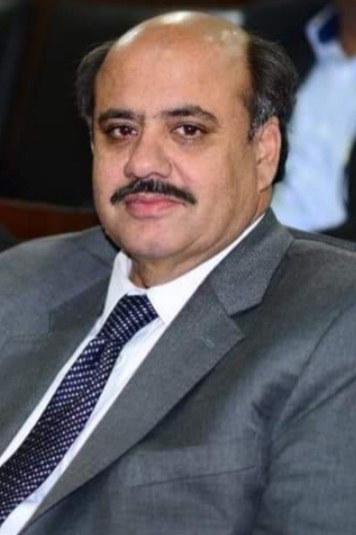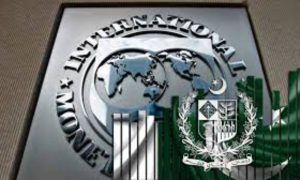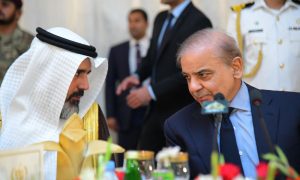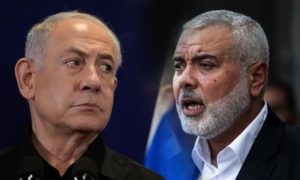
President Biden delivered his annual State of the Union address to a joint session of Congress on March 7. He articulated a comprehensive vision on various national and international issues, addressing both his domestic constituency and the global audience.
He announced his initiatives during his tenure to gather the Americans’ support in the next presidential election, which will be held in November 2024. He said, “The state of our union is strong and getting stronger.” Indeed, the U.S. is currently robust, but Biden’s claim it is getting stronger is debatable.
Though the speech focused on domestic politics, he shared his vision about the United States’ role in the international community. He confirms the continuity of the current foreign and strategic policy. Still, China-US relations, the war in Eastern Europe and the Middle East, and the strengthening of the Quad necessitate critical analysis.
Biden criticized his predecessor. He criticized Republicans for failing to protect the American democracy. He said, “My predecessor — and some of you here — seek to bury the truth about January 6, 2020.” He pointed out that the plots to steal the election posed a significant and gravest threat to U.S. democracy since the Civil War. He reminded them you can’t love your country only when you win. Besides, he criticized them over their policy to pass a national abortion ban, expressed his strong support for social security and Medicare, and voiced taxation on billionaires.
Instead of referring to the Russian Federation, Biden referred to Putin in his speech while discussing the Ukrainian war. He praised the Ukrainians’ resistance to Putin’s invasion and claimed that he was isolated. In reality, Russia has not been isolated. Even the United States’ threshold ally—India—is purchasing weapons and oil from Russia. Notably, Western and Ukrainian defense officials warned that the situation on the front lines is evolving in Russia’s favor.
He promised that the US would continue assisting Ukraine in its sovereign survival because this is in line with the Americans’ values and commitment to the free world. Moreover, he asked Congress to provide additional funding to Ukraine to demonstrate that Putin should understand that “We will not walk away. We will not bow down.”
He rejected, without naming the French President’s proposal about sending NATO trops to Ukraine. He said American forces would not engage in the conflict with Russian troops in Ukraine. “Our forces are not going to Europe to fight in Ukraine but to defend our NATO allies if Putin decides to keep moving west.”
The clarity about deploying troops in Ukraine would have a soothing effect on NATO allies and Americans because it reassures the former about the US armed forces’ availability to their defense and the latter that their boys are not going to Ukraine for the war.
President Biden tried to mask his support for Israel’s brutal strategy in Gaza. He defended his colossal political and military support to Israel by reiterating Hamas is a terrorist organization that committed a massacre on October 7. But did not explicitly admit the worsening human rights disaster in Gaza.
He tried to appease the left by stating that the killing of thirty thousand Palestinians was “heartbreaking,” and he increased the humanitarian assistance in Gaza. However, he maintained that Hamas could end the conflict by releasing the hostages, laying down arms, and surrendering those responsible for October 7.
China-US strategic competition figured in the address. He objected to the perception that China was on the rise and America was falling behind. He said, “We’re standing up against China’s unfair economic practices.” Besides, he assured that his administration would defend Taiwan and improve partnerships and alliances with India, Australia, Japan, and South Korea
The United States has been struggling to sustain its presence in global politics. The systematic rise of China and the Sino-Russia axis is increasing multipolarity and shifting the balance of power in their favor. These developments have increased the United States’ reliance on NATO in Europe and India in the Indo-Pacific. Besides, Washington has been endeavoring to institutionalize the minilateral strategic groups, Quad, I2U2, NATO-plus, and AUKUS, to contain China.
The consolidation of Quad does serve the strategic interests of the U.S. in the Asia-Pacific region, especially containing Washington’s global geopolitical rival, China. Conversely, it could undermine the security of many coastal states of the Indian Ocean, including Pakistan. Moreover, President Biden did not mention terrorism, indicating that the terrorist threat is not a top priority for the administration.
In summary, President Biden’s address came at a critical juncture, when the Americans entered a new phase in the 2024 election, and the international community encountered a decisive transformation in global politics. Indeed, the rise of China and Russia’s assertiveness in Europe impact the developments in the international arena, but the United States remains a trend setting great power in the global affairs.























